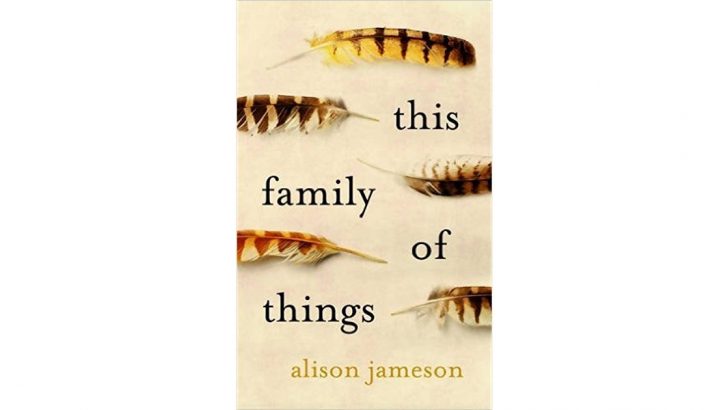This Family of Things
by Alison Jameson (Black Swan Ireland, €12.60)
The father of political philosophy, Thomas Hobbes, wrote in Leviathan that the lives of men and women were “solitary, nasty, brutish and short”. There are elements of these qualities in the characters of this very readable novel.
At the outset the reader is introduced to William O’Neill. Twenty-one years old, after he was jilted by his girl-friend he hangs himself, causing immense grief to his parents and friends.
The female lead is Margaret Connors. She is known as Midge or Midget. She acquired this sobriquet because she was so tiny when she was born prematurely. This is not the only disadvantage with which she has to cope. She was born into a family of itinerants or as they were known to an earlier generation – tinkers. Her father, a brutish drunk, physically assaults her and her mother with reckless abandon.
Then there is Bird Keegan. Thirty something and a bachelor, he manages the large family farm. He resides on his own in the family home, following the death of his parents. Naturally shy and partially deaf, he does not socialise easily. His sisters Margaret and Olive reside in a nearby bungalow. Embittered as a result of being disappointed in love, Margaret has developed into a flinty school-teacher. Olive, frail by nature, has discovered a lump, which she fears is the big C.
The story begins when Bird discovers Midge unconscious on his land. During a furious row her father has thrown her out of his car. Bird takes her to his home and attends to her injuries and after she leaves hospital has his sisters care for her.
In due course in typical Mills & Boon fashion various couples match-up. Midge marries Bird. Margaret renews her friendship with the man who left her at the altar and who is now a widower. Olive continues an affair which began during a pilgrimage to Medjugorje with a long-standing suitor.
Then tragedy and harsh reality intervene. In a bout of angry recriminations after she loses her baby, Midge’s marriage fails. Margaret is raped by Midge’s father. To wipe out the memories of these traumatic experiences Midge and Margaret head for the US.
Margaret spends a year visiting popular tourist destinations. Midge settles in Oregon, where she had acquired an appointment as an au pair to a young family. She finds herself in an insipid, liberal, secularist environment, dominated by political correctness. And even there tragedy seems to pursue her.
She witnesses the drowning of a young boy and escapes with slight injuries from a car crash in which her employer and his youngest son are killed. And tragedy also seems to stalk Margaret. Before the story ends she has already started on the road to becoming a ‘junkie’.
The characters in Alison Jameson’s narrative are authentic both with regard to their lives and the contexts of those lives. They also support the pessimistic claim by Hobbes about the lives of men and women.


 This Family of Things
by Alison Jameson
This Family of Things
by Alison Jameson 